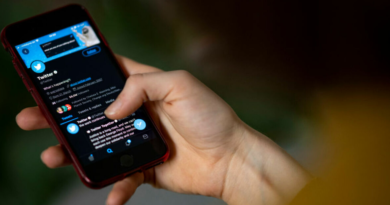Sam Altman’s ChatGPT Takes on Humor with a Twist
In the ever-evolving world of artificial intelligence, where the boundaries of technology are constantly being pushed, a unique and humorous situation recently unfolded.
Sam Altman, CEO of OpenAI, shared an amusing anecdote about ChatGPT, their revolutionary conversational AI, which has been stirring up the tech world with its advanced capabilities. But this time, it wasn’t about its technological prowess; it was about its attempt at humor.
ChatGPT’s Humorous Endeavor
According to Altman, they instructed ChatGPT to “be a chatbot that answers questions with cringey boomer humor”. The result? ChatGPT ended up setting up Grok, another chatbot, showing a lighthearted and entertaining side of AI that often goes unseen. This playful experiment sheds light on the versatility and adaptability of AI systems like ChatGPT, which are not only revolutionizing how we interact with technology but also how we perceive it.
Elon Musk’s Witty Take
The story took an even more humorous turn with the response from Elon Musk, a visionary entrepreneur known for his work with SpaceX, Tesla, and his own AI venture. Musk, known for his wit and often candid remarks, quipped that GPT-4, the latest iteration of OpenAI’s language model, “cannot tell a joke” and is “like a comedian with a stick so far up its ass, it can taste the bark!”
This cheeky comment is typical of Musk’s playful public persona, which often includes poking fun at technological advancements, including his own.
Grok Chatbot: Musk’s Latest AI Venture
Musk’s comment about GPT-4’s humor—or lack thereof—came in the context of his AI startup’s recent launch of the Grok chatbot. Grok, part of Musk’s ongoing endeavors in the field of artificial intelligence, represents another step forward in the quest to develop more advanced and nuanced AI systems.
While Musk’s comment may seem like a light-hearted jab, it also highlights the ongoing challenge in AI development: creating machines that can not only process information but also understand and replicate the nuances of human emotion and humor.
The Challenge of Teaching Humor to AI
The exchange between Altman and Musk brings to the forefront a fascinating aspect of AI development: teaching machines to understand and replicate humor. Humor is inherently human, a complex blend of cultural nuances, timing, and emotional intelligence. The ability of AI to grasp and reproduce humor is not just a technical challenge but also a test of how well these systems can understand and mimic human behavior and interactions.
The Future of AI and Humor
While Musk’s comments suggest that there’s still a long way to go in perfecting AI’s humor, experiments like Altman’s with ChatGPT are significant steps in this direction. As AI continues to evolve, the possibility of machines not only providing accurate information but also engaging in witty banter and humor becomes more plausible. This evolution could fundamentally change our interactions with technology, making them more relatable and enjoyable.
AI’s Broader Impact on Society
The advancements in AI, as exemplified by ChatGPT and Grok, have broader implications for society. These technologies are not just tools for efficiency and convenience; they are becoming companions and assistants that understand and respond to human emotions and needs.
As AI continues to integrate into various aspects of life, from customer service to personal assistants, its ability to engage in more human-like interactions, including humor, will become increasingly important.
Balancing Technological Advancement with Ethical Considerations
As we marvel at the capabilities of AI and its foray into humor, it’s also crucial to consider the ethical implications of these advancements. The development of AI that understands and replicates human emotions and humor must be balanced with considerations of privacy, security, and the societal impact of increasingly human-like AI.
Conclusion!
Sam Altman’s story about ChatGPT’s attempt at “cringey boomer humor” and Elon Musk’s witty response highlight a lighter, more human side of AI technology. It opens up a conversation about the future of AI in understanding and replicating human emotions, including humor.
As AI continues to evolve, it’s clear that its impact will extend beyond mere technological advancement, influencing how we communicate, interact, and even laugh. The journey of AI into the realm of humor is just beginning, and it promises to be as entertaining as it is groundbreaking.




